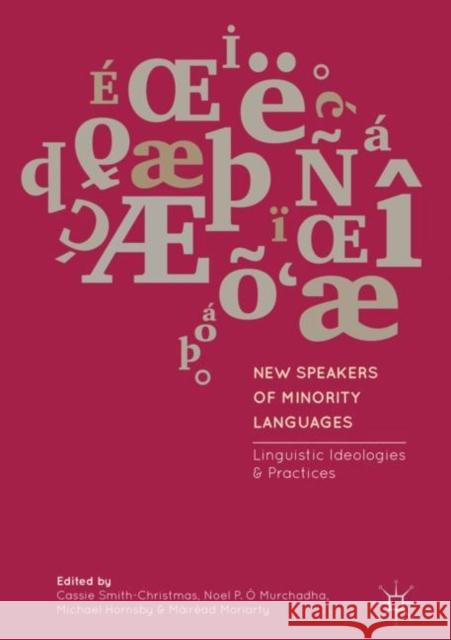New Speakers of Minority Languages: Linguistic Ideologies and Practices » książka



New Speakers of Minority Languages: Linguistic Ideologies and Practices
ISBN-13: 9781137575579 / Angielski / Twarda / 2017 / 295 str.
New Speakers of Minority Languages: Linguistic Ideologies and Practices
ISBN-13: 9781137575579 / Angielski / Twarda / 2017 / 295 str.
(netto: 536,72 VAT: 5%)
Najniższa cena z 30 dni: 539,74
ok. 16-18 dni roboczych.
Darmowa dostawa!
This book represents the first collection specifically devoted to New Speaker Studies, focusing on language ideologies and practices of speakers in a variety of minority language communities.
Wydanie ilustrowane
"The book is obviously written for researchers and graduate students, but the issues discussed throughout may also be of interest to a wider readership, particularly language activists and language teachers. ... Overall, this book makes an important contribution to the literature. ... Most of the issues treated in this collection will be familiar to scholars of language contact and shift, but the chapters provide a new perspective on many of them." (Colin J. Flynn, Journal of Multilingual and Multicultural Development, December 26, 2019)
"It is the first book on new speakers that explores the practical implications of new speaker theory on populations, and incorporates quantitative studies into a largely qualitative field. ... most of the more prevalent voices in new speaker theory are present in the book, this volume is sure to become key reading for all those with an interest in this emerging field, particularly in relation to minority languages." (Deirdre A. Dunlevy, Language Policy, Vol. 18, 2019)
Chapter 1. New Speakers, Familiar Concepts?
Cassie Smith-Christmas is a Research Fellow at the University of Limerick, Ireland. Her research interests involve the sociolinguistics of minority languages and she is the author of Family Language Policy: Maintaining an Endangered Language in the Home (Palgrave, 2016).
This book represents the first collection specifically devoted to New Speaker Studies, focusing on language ideologies and practices of speakers in a variety of minority language communities. Over thirteen chapters, it uses the new speaker lens to investigate not only linguistic issues, such as language variation and change, phonetics, morphosyntax, language acquisition, code-switching, but also sociolinguistic issues, such as legitimacy, integration, and motivation in language learning and use. Besides covering a range of languages - Basque, Breton, Galician, Giernesiei, Irish, Scottish Gaelic and Welsh - and their different sociolinguistic situations, the chapters also encompass a series of interactional settings: institutional settings, media and the home domain, as well as different contexts for becoming a new speaker of a minority language, such as by migration or through education. This collection represents an output by a lively network of researchers: it will appeal to postgraduate students, researchers and academics working in the field of sociolinguistics, applied linguistics, language policy and those working within minority language communities.
1997-2026 DolnySlask.com Agencja Internetowa
KrainaKsiazek.PL - Księgarnia Internetowa









